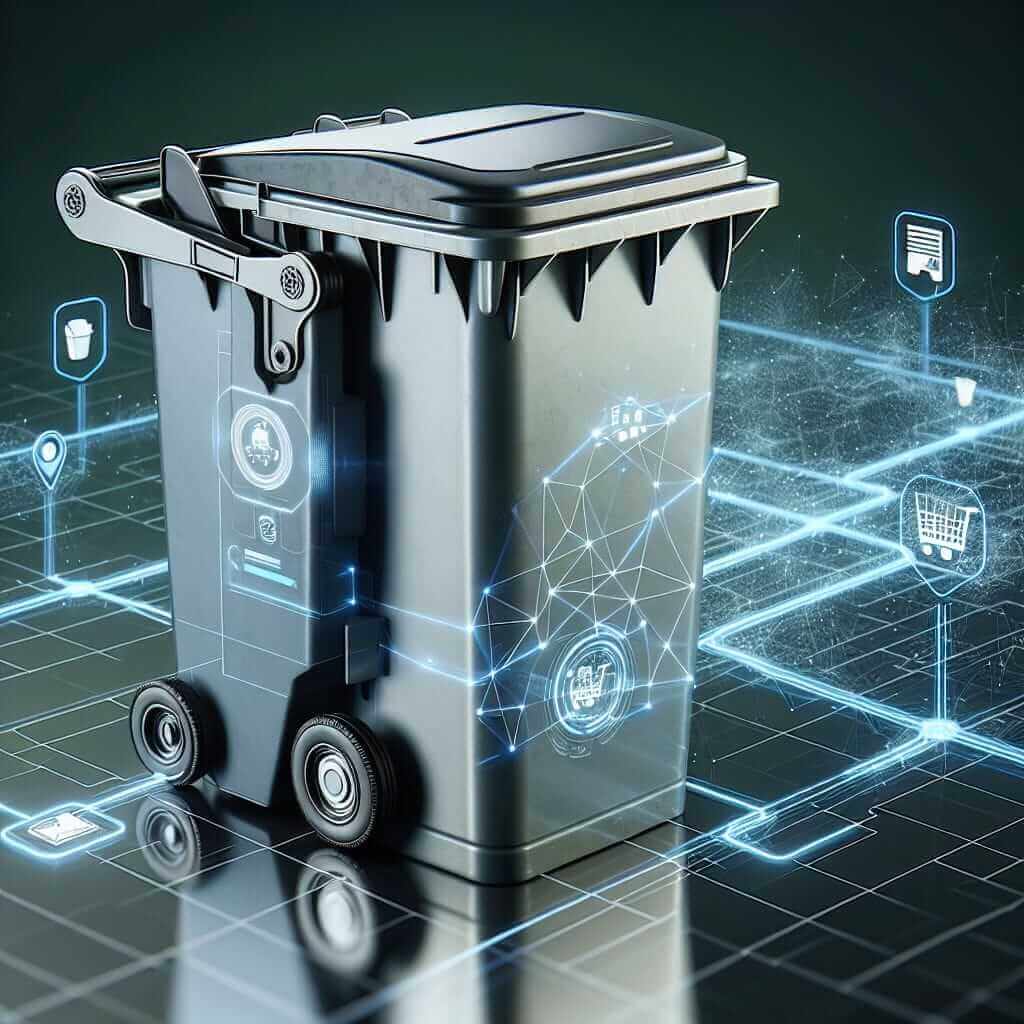The IELTS Reading section is designed to assess a variety of reading skills, including understanding main ideas, locating specific information, and recognizing a writer’s opinions, attitudes, or purpose. Topics often reflect current global issues, such as “technological innovations in waste management,” making this subject particularly relevant and likely to appear in future exams.
This article provides a detailed reading practice passage focused on “technological innovations in waste management,” drawing on real IELTS test formats. Given its increasing prevalence and importance, understanding updates in this field can greatly enhance your reading comprehension and preparedness for the IELTS exam.
Reading Passage
Technological Innovations in Waste Management
The increasing amount of waste produced by modern society necessitates innovative solutions for effective management. New technologies are being developed to handle, reduce, and recycle waste more efficiently, contributing to environmental sustainability. Below, we explore several technological advancements in this field.
Waste-to-Energy (WTE)
One of the most promising innovations is Waste-to-Energy (WTE) technology, which converts waste materials into usable heat, electricity, or fuel. Incineration is a common method where waste is burned at high temperatures to produce energy. Although this process can reduce the volume of waste significantly, it also raises environmental concerns due to the potential emission of harmful pollutants.
Automated Waste Sorting Systems
Automated waste sorting systems use advanced sensors and robotic technology to separate recyclable materials from waste more accurately and quickly than traditional methods. These systems can identify and sort plastics, metals, paper, and glass, significantly enhancing recycling efficiency and reducing the amount of waste sent to landfills.
Bioreactor Landfills
Bioreactor landfills are an advanced type of landfill where waste decomposition is accelerated through the controlled addition of liquid and air. This process enhances the breakdown of organic waste, leading to faster stabilization of the landfill and increased gas production, which can be harnessed for energy.
Chemical Recycling
Chemical recycling, also known as feedstock recycling, breaks down waste plastics into their chemical components, which can then be used to produce new plastics, fuels, or other chemicals. This method provides a way to recycle plastics that are not suitable for traditional mechanical recycling, reducing reliance on fossil fuels and minimizing environmental impact.
Smart Bins
Smart bins are equipped with sensors that monitor the level of waste inside and send alerts when they need to be emptied. This technology helps waste management companies optimize collection routes and schedules, reducing operational costs and environmental footprint by minimizing unnecessary trips.

Questions
Multiple Choice
-
What is one environmental concern associated with Waste-to-Energy (WTE) technology?
a. The high cost of implementation
b. The emissions of harmful pollutants
c. The slow decomposition of organic waste
d. The inadequate sorting of metals -
Automated waste sorting systems are primarily beneficial because they:
a. Decrease the initial cost of waste management
b. Increase the speed and accuracy of recycling
c. Produce less waste than other methods
d. Are easily implemented in any setting
True/False/Not Given
- Bioreactor landfills reduce the volume of metal waste.
- Chemical recycling can convert plastics into fuels.
Matching Headings
-
Match the following headings to the appropriate sections in the text:
- A) Accurate Sorting
- B) Energy Production
- C) Optimization of Collection
- D) Fast Decomposition
- Waste-to-Energy (WTE)
- Automated Waste Sorting Systems
- Bioreactor Landfills
- Smart Bins
Summary Completion
6-8. Complete the summary using words from the text.
Chemical recycling, also known as (6), breaks down waste plastics into their chemical components. This method provides a way to recycle plastics that are not suitable for traditional mechanical recycling. Bioreactor landfills enhance the (7) of organic waste, leading to faster stabilization and increased ___ (8) production.
Answer Key
Multiple Choice:
- b) The emissions of harmful pollutants
- b) Increase the speed and accuracy of recycling
True/False/Not Given:
3. Not Given
4. True
Matching Headings:
5.
-
- B) Energy Production
-
- A) Accurate Sorting
-
- D) Fast Decomposition
-
- C) Optimization of Collection
Summary Completion:
6. feedstock recycling
7. breakdown
8. gas
Common Mistakes
- Misinterpreting information: Ensure that you read each section of the text carefully and understand the context before answering.
- Time management: Allocate your time wisely for each type of question to avoid rushing through and making careless errors.
Vocabulary
- Incineration (n) /ɪnˈsɪn.əˌreɪ.ʃən/: The process of burning waste materials.
- Pollutants (n) /pəˈluː.tənts/: Substances that pollute something, especially water or the atmosphere.
- Decomposition (n) /ˌdiː.kəmˈpəʊ.zɪʃən/: The state or process of rotting or decay.
- Optimization (n) /ˌɒp.tɪ.maɪˈzeɪ.ʃən/: Making the best or most effective use of a situation or resource.
Grammar Focus
-
Passive Voice:
- Structure: Subject + be + past participle (by agent)
- Example: “Waste is burned at high temperatures.”
-
Relative Clauses:
- Structure: Relative pronoun + subject + verb
- Example: “Smart bins, which are equipped with sensors, monitor the level of waste inside.”
Tips for a High IELTS Reading Score
- Practice regularly: Make use of various reading materials to improve speed and comprehension.
- Manage your time: Practice under timed conditions to get used to the pacing of the exam.
- Expand your vocabulary: Learn new words and their usage to improve understanding of the text.
- Pay attention to instructions: Ensure you understand what each question is asking before attempting to answer.
Integrating practice into your study routine and familiarizing yourself with common IELTS topics, like “technological innovations in waste management,” can significantly enhance your confidence and performance on the test day.